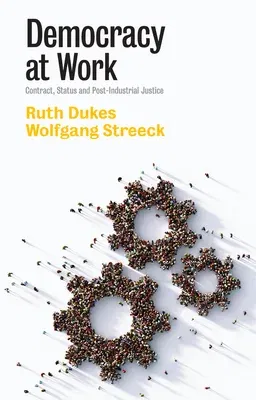In the countries of the global North, workplace democracy may be thought
of as a thing of the past. Increasingly, working relations are regulated
primarily by contract; workforces are fissured and fragmented. What are
the consequences of this? How should we respond?
Ruth Dukes and Wolfgang Streeck argue that the time is ripe to restate
the principles of industrial democracy and citizenship for the
post-industrial era. Considering developments within political economy,
employment relations and labour law since the postwar decades, they
trace the rise of globalization and the 'dualization' of labour
markets - the emergence of a core and periphery of workers - and the
progressive insulation of working relations from democratic governance.
What these developments amount to, they argue, is an urgent need for
political intervention to tame the new world of 'gigging' and other
forms of highly precarious work. This, according to the authors, will
require far-reaching institution-building designed to fill legal
concepts such as 'employment' with political substance.
This eloquent call for a reimagining and renewal of the institutional
and material conditions of freedom of association and the reinvention of
industrial democracy will be crucial reading for anyone interested in
work in the twenty-first century.

